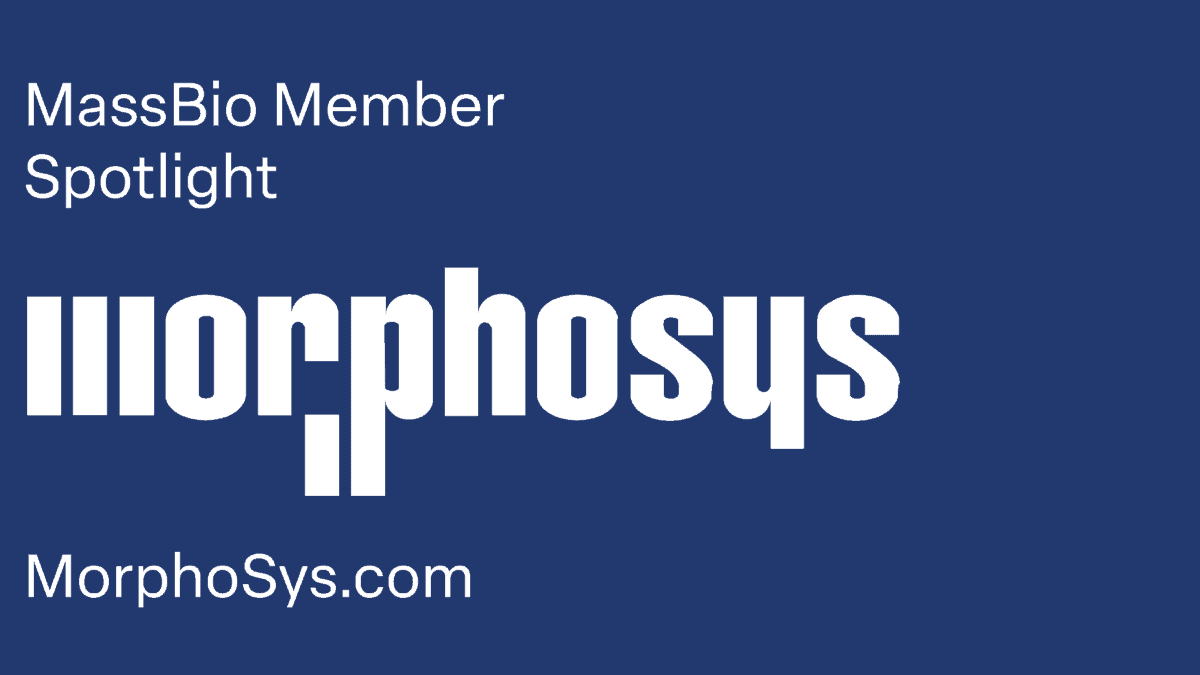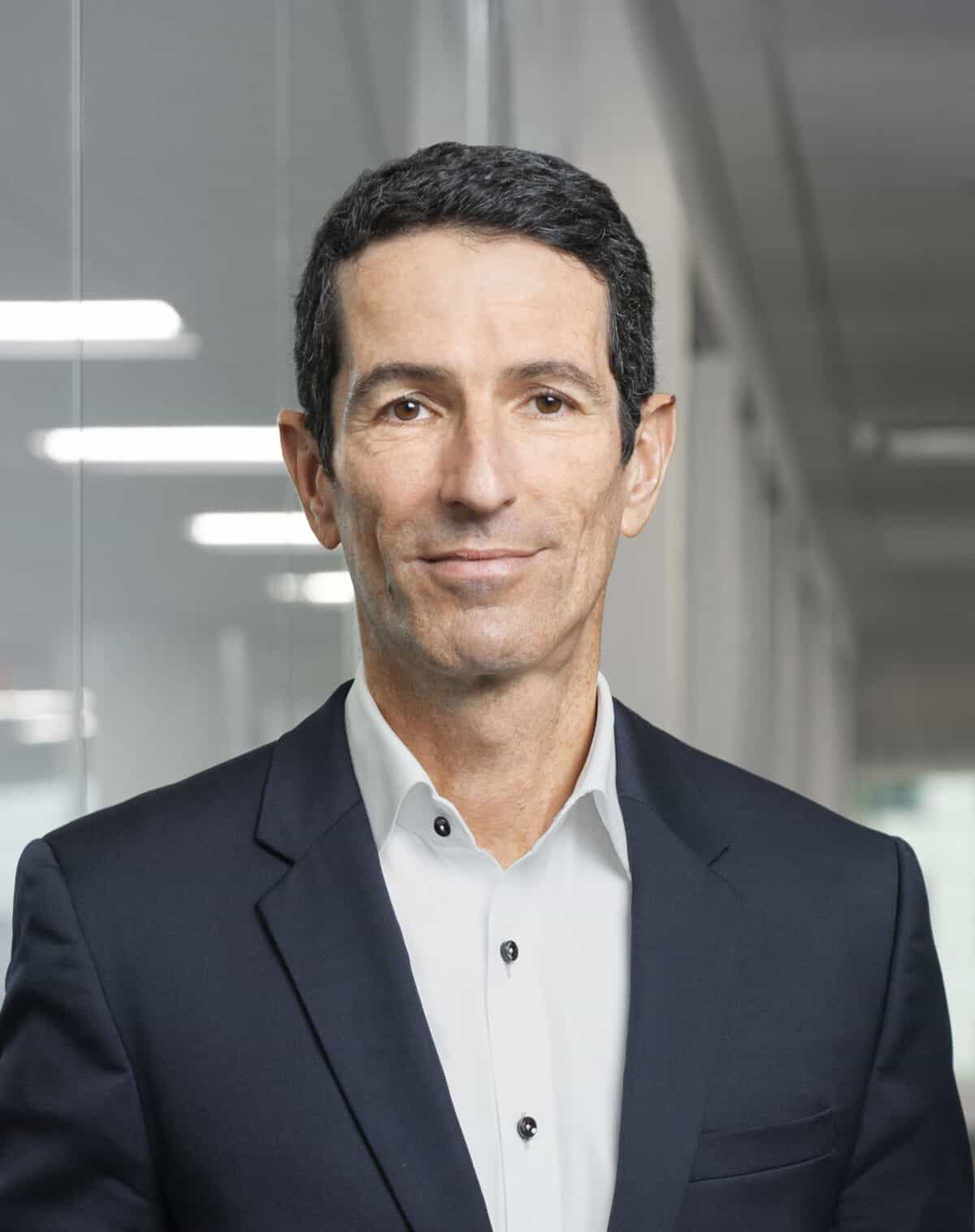
Every month, MassBio spotlights a member company and its efforts in advancing the life sciences industry and supporting the patients we serve. In November, we spoke with Jean-Paul Kress. As CEO, Jean-Paul Kress leads MorphoSys in its mission by focusing on translating scientific innovation into medicines that can redefine how cancer is treated. Since becoming CEO in 2019, Jean-Paul has guided MorphoSys through a strategic and cultural transformation to its current status as a global biotechnology company with an approved medicine and several late-stage development opportunities. As part of this evolution, Jean-Paul championed the company’s acquisition of Constellation Pharmaceuticals in 2021. Jean-Paul received his M.D. from Faculté Necker-Enfants Malades in Paris, and graduate and post-graduate degrees in biochemistry and in molecular and cellular pharmacology from Ecole Normale Supérieure in Paris. Jean-Paul is based in Boston.

Can you tell us about your organization, its mission, and current initiatives?
At MorphoSys, our mission is clear – More life for people with cancer.
We are a global biotechnology company based in Boston and Munich, Germany. Originally a research and development technology provider, MorphoSys has been transformed by me and my team into a company focused on the clinical development and commercialization of innovative oncology medicines.
We have an advanced pipeline with strong growth opportunities across a wide range of difficult-to-treat, debilitating and often deadly cancers. Our largest and most immediate opportunity lies with pelabresib, our investigational BET inhibitor, which has the potential to become a foundational first-line therapy for myelofibrosis patients.
How does your organization’s activities help patients now and into the future?
Everything we do at MorphoSys is aimed at making a profound difference for cancer patients and their loved ones.
In 2020 and 2021, our immunotherapy tafasitamab was granted accelerated approval as Monjuvi® in the U.S. and conditional approval as Minjuvi® in the European Union, respectively, for use with lenalidomide in certain patients with relapsed or refractory diffuse large B-cell lymphoma (DLBCL). These milestones enabled MorphoSys to forge strong relationships with the healthcare providers and specialists dedicated to treating these patients, bringing us closer than ever to the community.
We have the opportunity to do this again with pelabresib, which has the potential to truly improve the standard of care for patients with myelofibrosis. Before the end of this year, we will share topline results from the Phase 3 MANIFEST-2 trial of pelabresib in combination with ruxolitinib in the first-line setting. Previously presented Phase 2 data plus the enthusiasm expressed by oncologists and other experts underscore the promise of this investigational therapy. And we’re not stopping there. Beyond myelofibrosis, we are also exploring pelabresib’s therapeutic potential in other myeloid diseases, including essential thrombocytopenia and lower-risk myelodysplastic syndromes.
What do you see as the biggest challenge facing the life sciences industry today?
Increased market volatility in recent years has led to a period of turbulence in the life sciences industry. Cautious behavior from investors and the financial community has resulted in many distressed biotechnology companies.
Despite this turbulence, MorphoSys has remained stable and successful by transforming into a late/commercial-stage biotechnology company. We developed a cohesive business model and strategy, choosing to focus on oncology based upon previous experience – including successfully taking a medicine from the clinic to patients.
For companies to be successful, it is crucial to strategically prioritize unique strengths and deliver differentiated, late-stage clinical results. In this market, access to capital is tied to a company’s ability to generate tangible innovation. Not only is this in the best interest of patients, it also propels companies like ours to the next level.
What’s next for your organization / what are you focused on in the coming year?
Our primary focus is to deliver the topline results from our Phase 3 MANIFEST-2 study of pelabresib for first-line treatment of patients with myelofibrosis by the end of this year.
Based on strong Phase 2 findings, we are very optimistic about the outcome of this pivotal study. We are therefore proactively preparing our regulatory submissions, so we’re able to quickly apply for approvals in both the U.S. and Europe. Following the release of Phase 3 data, we look forward to discussing the results with regulatory agencies. Our hope is to bring this therapy to patients as quickly as possible.
Beyond pelabresib, we have made exceptional progress with our pipeline in a range of difficult-to-treat cancers and, as a result, have a rich set of catalysts from our pivotal studies over the next two years. Pivotal topline data readouts are expected in 2024 for the Phase 3 inMIND study of tafasitamab in combination with lenalidomide and rituximab for relapsed/refractory follicular lymphoma or marginal zone lymphoma and in 2025 for the Phase 3 frontMIND study of tafasitamab plus lenalidomide and R-CHOP (rituximab, cyclophosphamide, doxorubicin, vincristine, and prednisone) as a first-line therapy for DLBCL.
If you’re interested in being featured in MassBio’s Member Spotlight, please review our guidelines.